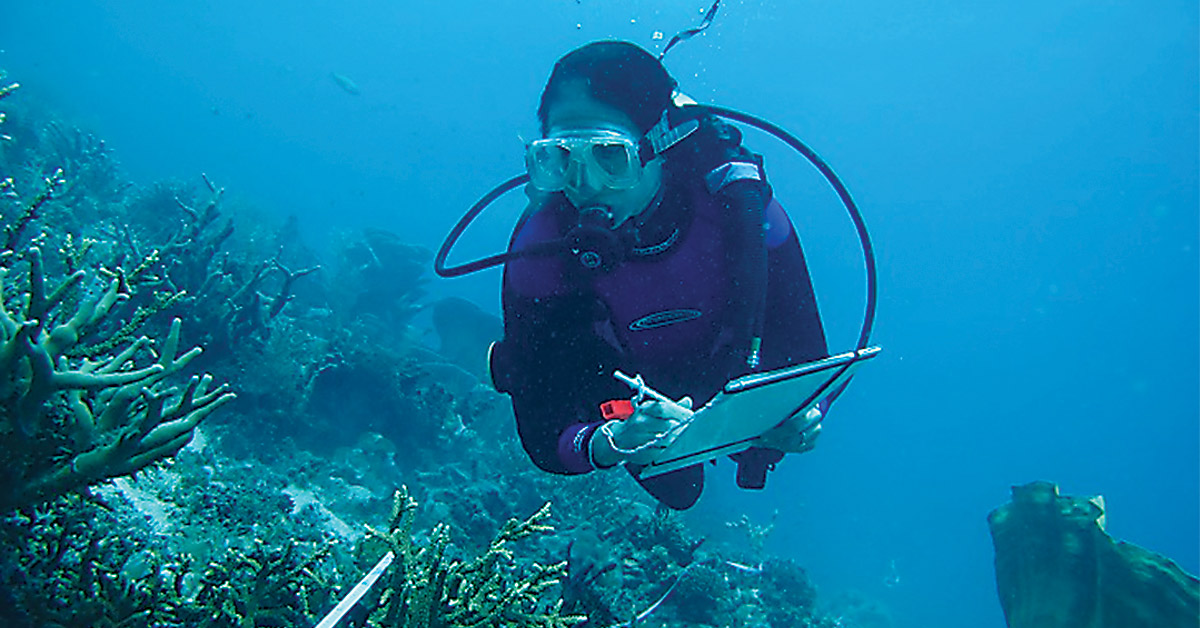Below the Surface
An in-depth understanding of ocean life

In 2001, her adviser from the University of California, Berkeley, was to be the one near the bottom of the sea studying the habitat of the stomatopod, or mantis shrimp. But he couldn’t get medical clearance for the saturation dive. Although Fox’s interest was in coral reef conservation, she couldn’t say no to the amazing opportunity.
Global warming is a real threat to coral reefs, she says, because it has led to bleaching. Corals secrete calcium carbonate, creating a limestone-like skeleton whose surface is actually the live animal. Algae live inside the corals in a symbiotic relationship and give them their color. When the water heats up, the algae move out, leaving the corals white and stressed but still alive. If the algae don’t return, the corals eventually die.
“A lot of the Great Barrier Reef has died,” Fox says, “because of some of that major bleaching.” The Coral Reef Alliance developed a theoretical model to show the impact of warming on the reefs 300 years in the future and how to save them today.
“Climate change is a very big threat and very pervasive.”
Fox’s work as a coral reef conservationist no longer calls for saturation diving — so named because the body gets saturated with nitrogen at that depth and decompression is needed. But she fondly remembers that formative experience aboard the research vessel Aquarius decades ago. On that expedition, Fox spent about nine days 45 feet below the surface. She and a team member donned double scuba tanks for daily dives guided by a line attached to the capsule. They mapped the stomatopods’ hangouts with plastic paper and pencil tied to a string. Though the dive was a side project for Fox, who was doing her Ph.D. work on coral reefs damaged by dynamite fishing off Indonesia, its importance still resonates today.
“In many developing countries’ remote coastal communities and villages, coral reefs provide the sources of food and income and shoreline protection,” she says. “They’re a very important ecosystem for people.”